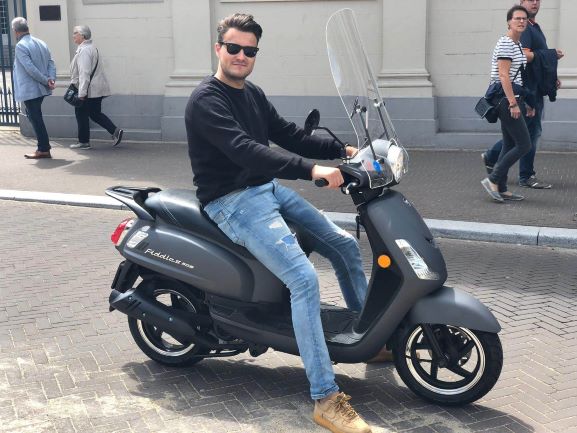According to the RAI Association and BOVAG, mopeds are becoming increasingly popular, partly because they are seen as a replacement for public transport since the corona crisis. This also applies to the electric scooter sharing segment. A number of scooter sharing providers indicate that they expect that the use of scooter sharing will decrease significantly if a helmet requirement is introduced.
The light moped is a Dutch vehicle category that is discussed in the Climate Agreement
it has been agreed that it will only sell zero-emission new products in 2025
turn into. The reduction of emissions from mopeds is regulated at EU level. In a letter to the House of Representatives, Minister of Infrastructure and Water Management Cora van Nieuwenhuizen indicates that she is committed to only selling zero-emission mopeds in the EU from 2030 onwards.
The same House of Representatives has requested by motion for a helmet to be mandatory for mopeds
improving road safety for light-moped riders. The draft decision is in
internet consultation and shows that the measure is not widely supported
can calculate as shared with your House in the letter of 7 October 2020. Only
7% are positive about the measure. In the internet consultation is therefore also
explicitly asked to include the negative consequences for sustainability
weigh in the decision whether or not to introduce a helmet requirement.
Furthermore, research by Arcadis in 2019 shows that approximately 60% of light moped riders expect to switch to another means of transport when a helmet is mandatory for
mopeds are introduced. About half of them think of the
(electric) bicycle, and the other half from less clean alternatives such as the
car. In the short term, this could be the positive effect of the transition to
emission-free mopeds can reduce.
Also read: A huge number of mopeds sold due to corona crisis



